New Diabetes Medication Good for the Heart
By Dr. Barry Ramo, MD, FACC - Director New Heart Fitness and HealthJT is a 61-year-old woman with a seven-year history of type II diabetes mellitus who had enrolled in the New Heart New You program for weight management and exercise training. Four-years previously, she had a heart attack and a coronary artery stent placed. Subsequently, she remains free of further cardiac problems. She is obese with a BMI of 31, sits at work 7 hours and hates exercise. Her blood pressures have not been well controlled. She was being treated for high LDL cholesterol with a statin. Her diabetes is well controlled. Her current medications are atorvastatin, lisinopril and metformin.
Diabetes carries an increased risk for heart disease of several types. Coronary artery disease leading to heart attacks and heart failure. Heart attacks lead to destruction of heart muscle and eventually heart failure. Diabetes causes a unique type of heart damage termed diabetic cardiomyopathy. Cardiomyopathy means heart muscle disease. In diabetes, cardiomyopathy results from obstruction of the small blood vessels or arterials that supply oxygen to the heart muscle. The result is severe reduction in the hearts ability to provide adequate circulation leading to congestive heart failure and a risk for sudden cardiac death.
The magnitude of the problem of heart failure in diabetes has recently been recognized as an important issue that doctors need to address. The cause of the heart failure either due to large artery disuse or small artery disease determines the diagnostic and therapeutic approaches rather the focus of pharmaceutical treatments.
Our focus has been preventing atherosclerosis in the major coronary arteries and controlling blood sugar. A new finely focus should be on preventing and treating heart failure.
Hypertension is a major cause of heart failure both in patients with and without diabetes. At least 40% of patients with diabetes have hypertension. The American diabetes Association recommends a systolic blood pressure of 125 or 130 mmHg. If you use an automated blood pressure device the number should be 120 mmHg as these devices tend to record 5 mm lower than the standard blood pressure measurement.
The choice of medication to treat hypertension is not as important as assuring that the hypertension is controlled. Two classes of drugs protect against kidney failure and the need for dialysis. Angiotensin inhibitors (angiotensin-converting enzyme [ACE] inhibitors and angiotensin receptor blockers [ARBs]) protect the kidneys and help avoid dialysis.
Controlling blood sugar with insulin and a variety of classes of drugs that do that. Until the development of the new class of drugs, control of blood sugar did not provide any cardiac protection. The development of heart failure is not protected by blood sugar control medication. The new class of drugs called sodium-glucose cotransporter (SGLT2) inhibitors (dapagliflozin, empagliflozin, or canagliflozin) has changed all of that .The initial clinical trials of these drugs intended to demonstrate their benefits on lowering blood sugar and reduce the eye and kidney complications of diabetes. The SGLT2 inhibitors provided an unexpected benefit for the heart. Scientific studies have shown SGLT2 inhibitors reduced the risk of developing heart failure and hospitalization for heart failure in patients who never had heart failure. The damage to the heart causing heart failure was reversed (a term called reverse remodeling). Additionally, patients who have most severely damaged hearts also benefited from these agents. In September 2020, the drugs were reported to provide the same benefits to similar patients without diabetes. Ironically a drug originally developed to lower blood sugar protected the heart. Researchers have not established the precise mechanism why this class of drugs acts on the heart.
We reviewed JT’s medication and found it to be based on solid science following national guidelines. She is receiving a cholesterol-lowering drug or statin because patients with diabetes should be assumed to have coronary artery disease (she already has it) and should have their cholesterol lowered to target. The current target in our practice is LDL cholesterol lower than 50mg/dl. At this level, studies have shown reversal of disease is possible.
She is taking lisinopril. The class of drugs called ACE inhibitors protect kidney function and can control her blood pressure.
JT should be utilized for heart protection. The decision to institute an SGLT2 blocker is very reasonable. These agents have proven safe, help with weight loss and are well tolerated. They are expensive at nearly $600.00/month. They will be the standard of care for patients with diabetes and will have an important role in caring for patients with heart failure of a variety of causes.
The New Heart New You program that JT enrolled in is a heart disease prevention program. Over the three month program, JT will have 36 one-hour sessions with a trainer and nutrition coach. She will develop a personalized exercise program that hopefully will help her control her weight, blood sugar and blood pressure.
